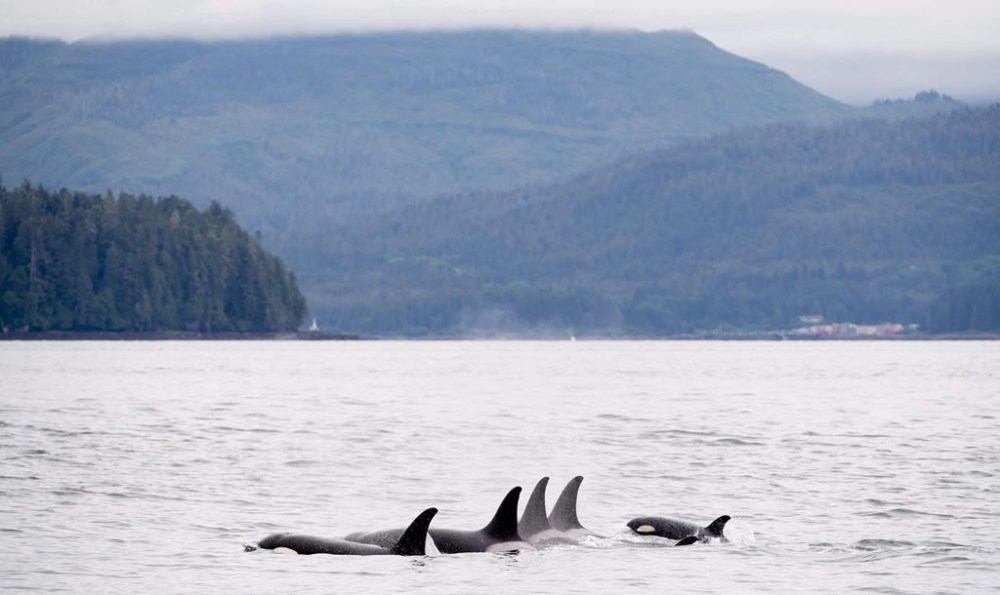Environmentalists claim ‘setback’ for species protection in B.C. port expansion case
Advertisement
Read this article for free:
or
Already have an account? Log in here »
We need your support!
Local journalism needs your support!
As we navigate through unprecedented times, our journalists are working harder than ever to bring you the latest local updates to keep you safe and informed.
Now, more than ever, we need your support.
Starting at $15.99 plus taxes every four weeks you can access your Brandon Sun online and full access to all content as it appears on our website.
Subscribe Nowor call circulation directly at (204) 727-0527.
Your pledge helps to ensure we provide the news that matters most to your community!
To continue reading, please subscribe:
Add Brandon Sun access to your Free Press subscription for only an additional
$1 for the first 4 weeks*
*Your next subscription payment will increase by $1.00 and you will be charged $20.00 plus GST for four weeks. After four weeks, your payment will increase to $24.00 plus GST every four weeks.
Read unlimited articles for free today:
or
Already have an account? Log in here »
Hey there, time traveller!
This article was published 13/01/2025 (312 days ago), so information in it may no longer be current.
A Federal Court judge has thrown out a legal challenge by environmental groups that claimed allowing the expansion of a massive container facility on British Columbia’s waterfront would threaten the survival of southern resident killer whales and salmon.
The David Suzuki Foundation, the Georgia Strait Alliance, the Raincoast Conservation Foundation and the Western Canada Wilderness Committee filed a legal challenge last June against the Roberts Bank Terminal 2 project in Delta, B.C.
The groups claimed the federal government’s approval of the project wasn’t in step with the Species at Risk Act because it will destroy a large swath of chinook salmon habitat, which the endangered killer whales rely on for food.

The Federal Court dismissed the group’s judicial review on Friday, ruling that the decisions by the federal environment minister and the cabinet to allow the project to proceed were reasonable.
The court found the environment minister’s decision complied with both environmental assessment legislation and the Species at Risk Act “by imposing conditions on the project that are rationally connected to the likely adverse effects on the whales.”
The environmental groups claimed the port expansion will “jeopardize the whales’ survival and recovery and destroy their critical habitat,” and that approving the project skirted requirements to protect at-risk species.
The federal government argued in court that the conservation groups fundamentally misconstrued how the project will be regulated because the decisions did not “shortcut future federal and provincial authorizations” needed for the expansion to happen, including those necessary under at-risk species protection legislation.
The Vancouver Fraser Port Authority claimed the project is still subject to other approvals and all feasible protective measures couldn’t be already in place because “sound conservation practice is not a point in time exercise and conditions must be flexible and adapt to the project as it continues.”
Other permits the project requires to happen include approvals under a section of the act by the federal fisheries minister, which will only be issued if the minister “is satisfied that the whales’ survival or recovery will not be jeopardized,” the ruling says.
In a statement Monday, Ecojustice, which argued the case for the environmental groups, called the decision “an unfortunate setback for species protection and conservation efforts.”
Jeffery Young, a senior science and policy analyst at the David Suzuki Foundation, said in the statement that the ruling is a loss for southern resident orcas, chinook salmon and other species in the Fraser estuary.
Young said an independent environmental assessment found the project would cause significant harm to the southern resident killer whales and chinook salmon, yet cabinet still approved it.
“This ruling undermines Canada’s Species at Risk Act,” he said. “We urge the federal government to refocus its efforts on nature protection and implement emergency protections for the southern residents and their prey.”
In a statement, the Vancouver Fraser Port Authority said the ruling “reaffirms the rigor of the federal environmental assessment process that Roberts Bank Terminal 2 went through.”
“Roberts Bank Terminal 2 is vital to support Canadian trade and our shared prosperity. We are advancing the project in an environmentally responsible way that reflects First Nations’ priorities and supports Canada’s future trade needs,” the statement said. “We are still in the process of carefully reviewing the court’s decision.”
This report by The Canadian Press was first published Jan. 13, 2025.
